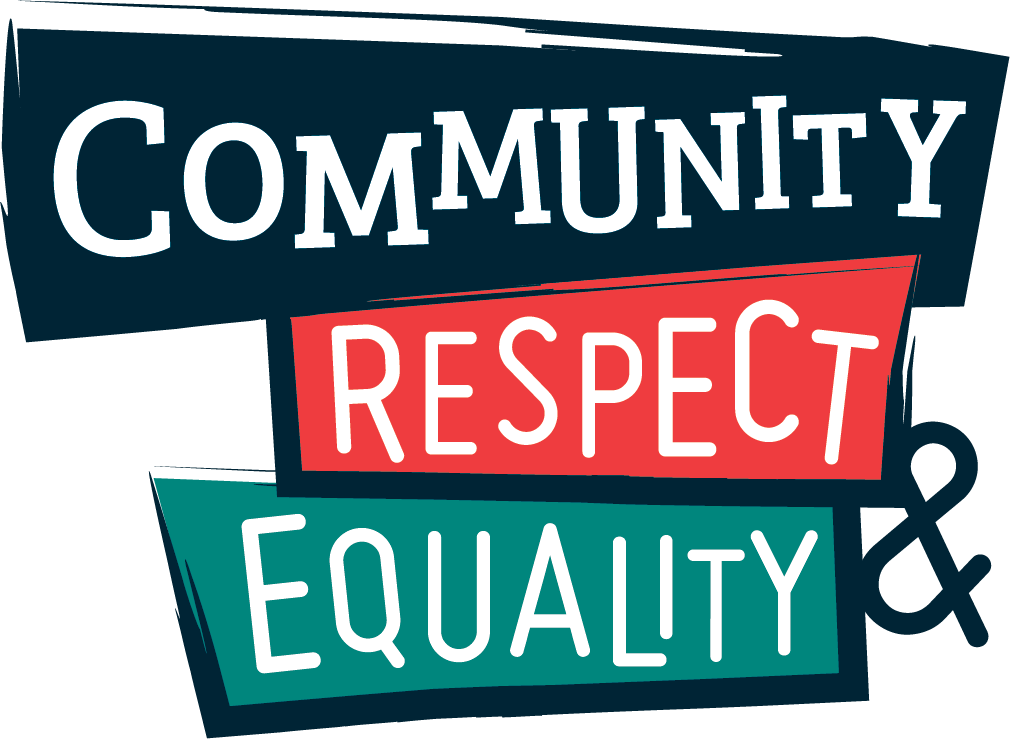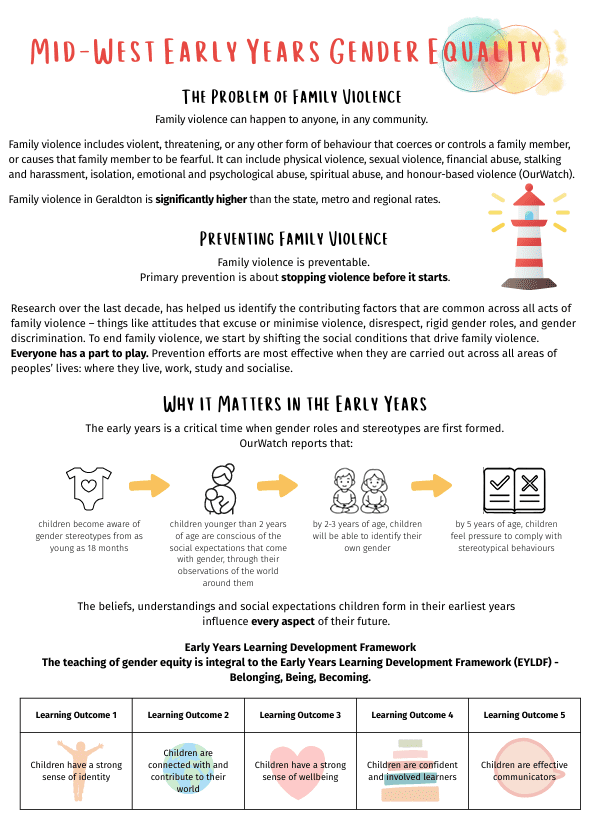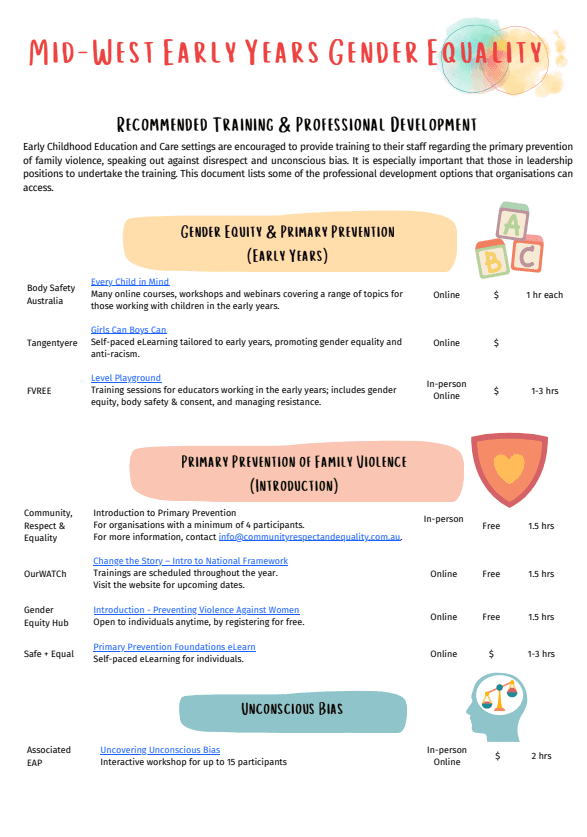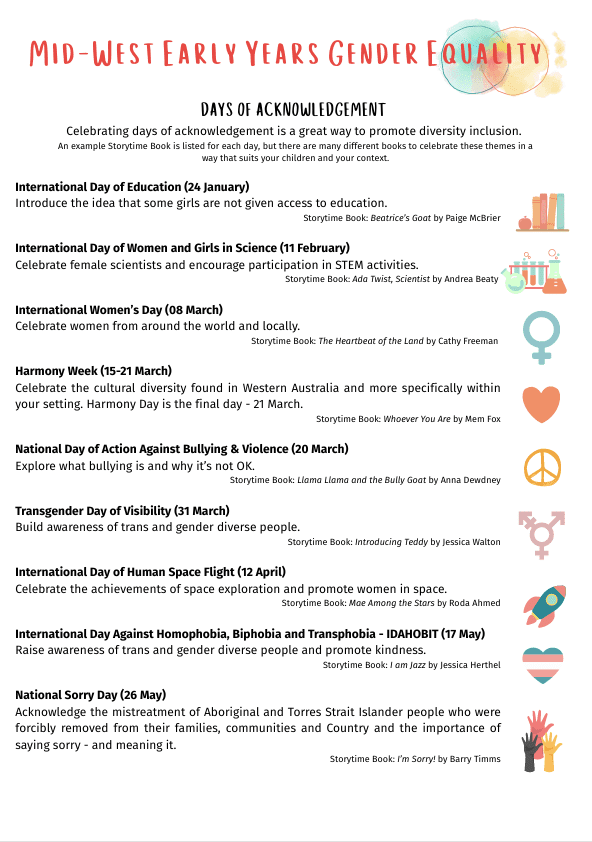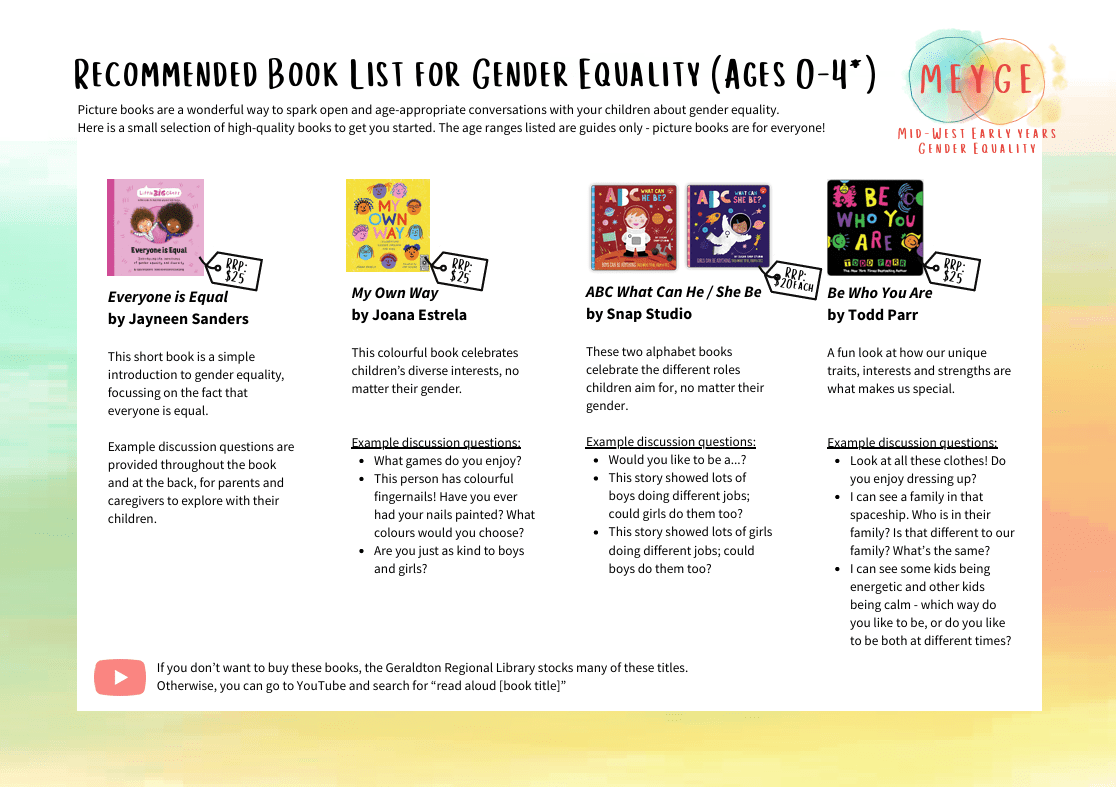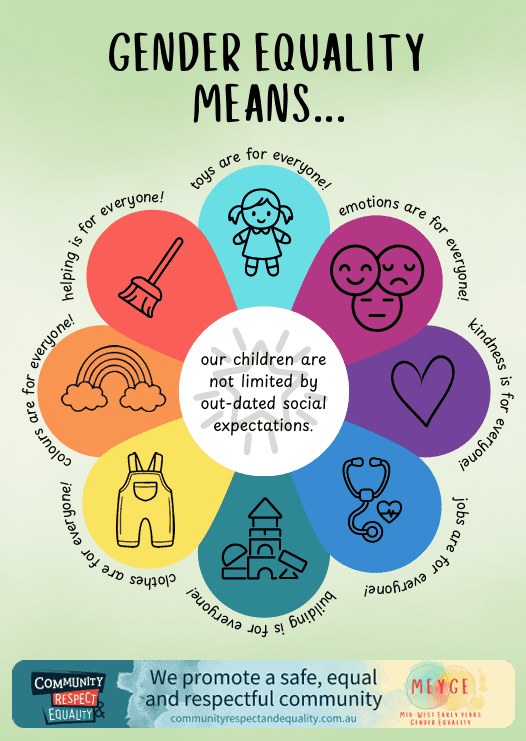
Mid-West Early Years Gender Equality Project (MEYGE)
The Mid-West Early Years Gender Equality Project (MEYGE) was created as a primary prevention response to address the complex nature of family and domestic violence within the Mid-West region. This innovative project lays strong foundations for school-based Protective Behaviours and Respectful Relationship curriculums and forms the earliest age-based primary prevention initiative of Desert Blue Connect’s Community, Respect and Equality project (CRE).
Prevention of family violence is a long-term undertaking that requires sustained, unified effort by the individuals and organisations that make up our community.
MEYGE is informed by evidence that the early years is a critical time when gender roles and stereotypes are shaped. The project has identified limited work is currently being done within the Mid- West to promote an awareness of gender equality in the early years.
The project seeks to provide foundational learnings around gender stereotypes to support caregivers and early childhood professionals to breakdown gender stereotypes and nurture healthy childhood development and wellbeing. This will include supporting services to adopt a gender lens approach into daily practices to assist in identifying service gaps and the development of resources and messages that model gender inclusive practices and attitudes that children can be anything they want to be without being limited by their gender.
While materials are aimed primarily around early childhood professionals, content aims to be transferable to support care givers within the home environment to adopt principles of the project. Resources aim to be sustainable, reflecting the strengths and expressions of community, family and children and will be freely available to the community.
Prevention of family and domestic violence requires generational change and it is the hope of the Mid-West Early Years Gender Equality Project that this can be achieved by positive influences on children’s and families’ understanding of gender norms.
Keeping Kids Safe In Geraldton (Protective Behaviours Story Book)
Desert Blue Connect, in collaboration with Child Focused Safety Services WA, Ngala, and WA Police, have proudly developed the ‘Keeping Kids Safe in Geraldton’ storybook. Written by Andrea Musulin and illustrated by Safy and Lara Tashkandy.
The book is designed to provide Protective Behaviours education in a way that is engaging and relatable to local children. This storybook is a wonderful tool for teaching kids about their right to feel safe, and equipping them with strategies to protect themselves. It’s all about starting those crucial conversations with our kids to create a safer, happier community.
It is an essential tool for parents,carers, and educators to support ongoing conversations about child safety.
